 Columbia Students Once Rallied Against Nazis — Now They Cheer for Them
Columbia Students Once Rallied Against Nazis — Now They Cheer for Them
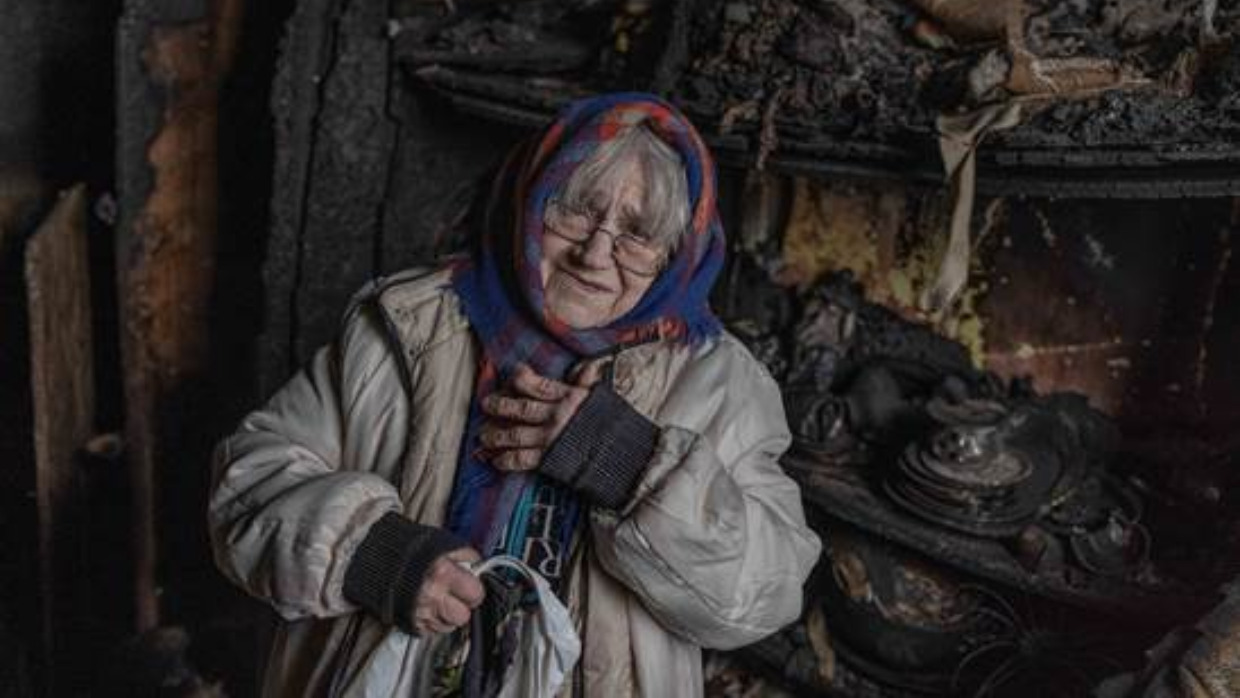

6 min read
Some sparks of light amidst the bleakness of war.
A chill settles over Viacheslav Gluzman’s room in Odessa’s Jewish nursing home, and it has little to do with the freezing February temperatures outside. Another resident of the home has just passed away. Of its 50 elderly residents - many of whom are Holocaust survivors - 18 have passed away since Russian tanks rolled over the border a year ago.
“The elderly people died from stress. They hear the sirens. They see the news. It’s that simple,” Rabbi Avraham Wolff, Odessa’s chief rabbi, said.
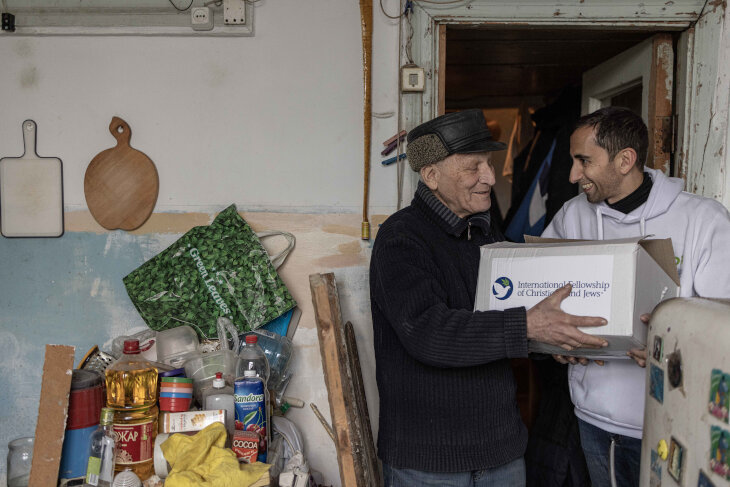 Photo credit: Avishag Shaar-Yashuv (IFCJ)
Photo credit: Avishag Shaar-Yashuv (IFCJ)
In addition to the nursing home, Chabad also runs a Jewish center, a synagogue, three kindergartens, an elementary and high school, a Jewish university and an orphanage - the latter of which just returned home after spending the past year of war as refugees in Berlin.
At the Jewish center, dozens of Holocaust survivors line up to receive a box of food. Some 7,000 boxes are distributed in Odessa alone in conjunction with the American Jewish Joint Distribution Committee and are funded by the International Fellowship of Christians and Jews. The fellowship raised $30 million for Ukraine’s embattled Jewish community at the start of the war and this week pledged to raise a further $4 million.
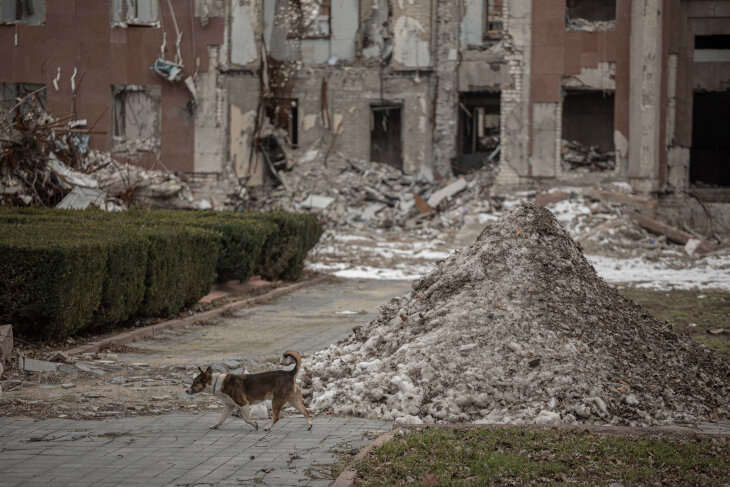 Photo credit: Avishag Shaar-Yashuv (IFCJ)
Photo credit: Avishag Shaar-Yashuv (IFCJ)
Most of Odessa’s Jewry - 30,000 out of 50,000, according to Wolff - fled the city when war broke out. Still, the number of people receiving aid has swelled by the thousands. Some of them are internally displaced persons (IDPs) while others are locals who in the past never needed assistance. “We’ve seen wealthy families go from being large donors to receiving donations,” Wolff said. “We moved from providing them with learning and Torah classes to basic survival.”
The Chabad-run school has also seen its numbers decline drastically as people fled the city and then spike. The reason for this, according to Wolff's wife, Chaya, is because the children of IDPs from Mykolaiv and the missile-battered city of Kherson joined. New families from Odessa also chose to send their children there because their own schools were only working remotely and parents needed to return to work, or they were seeking a sense of community, Chaya Wolff said.
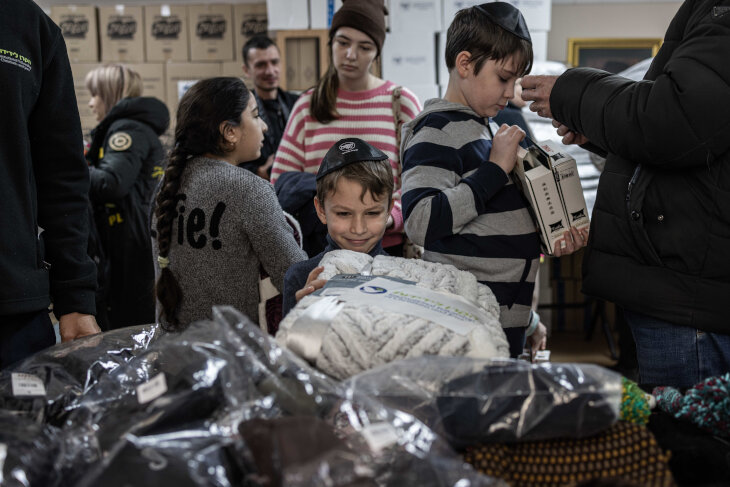 Photo credit: Avishag Shaar-Yashuv (IFCJ)
Photo credit: Avishag Shaar-Yashuv (IFCJ)
The school was the first to open in Odessa on September 1, 2022. Of 150 schools, only a third have bomb shelters and are permitted to operate, while the rest were forced to enter their third year of remote learning, induced first by the pandemic and then by the war.
In contrast with Israel where air raid sirens allow only 15 seconds to two minutes to run for cover, in Odessa people are given between 15 and 45 minutes to seek shelter once the siren blares, depending on whether the incoming projectile is an UAV or a drone. Being released from the shelter also takes much longer. On some days, the schoolchildren will spend all day and well into the evening in the school's shelter, which is outfitted like a classroom.
According to Wolff, more and more Jews have begun affiliating themselves with the community in the past year, most of them total strangers. "We asked them, 'where have you been all these years?'" Many of them, she said, were under the mistaken impression that the work that Chabad does was limited to acts of charity for the poorer segments of society. "Now that they have received the embrace of the community, we hope that they will stay a part of it even after the war."
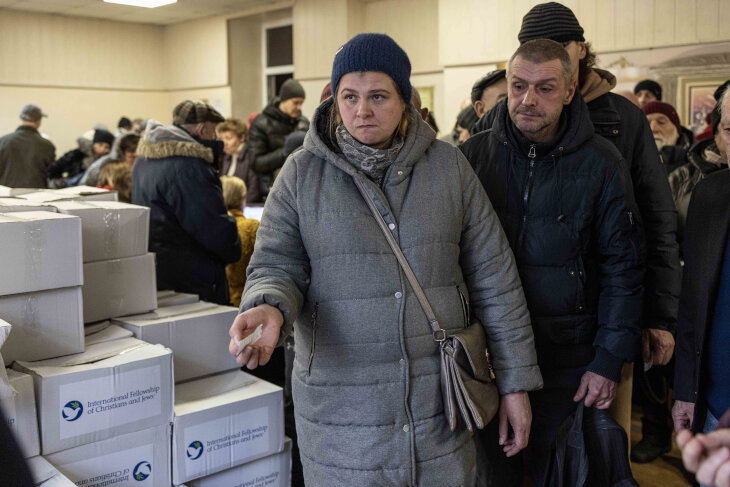 Photo credit: Avishag Shaar-Yashuv (IFCJ)
Photo credit: Avishag Shaar-Yashuv (IFCJ)
A similar phenomenon occurred in Mykolaiv, a two-hour drive from Odessa. The community whittled down to 4,000 after its rabbi, Shalom Gottlib, helped more than 1,500 Jews escape. But like Odessa, other Jews have since emerged from the woodwork. "We've had 150 new families join the community since the outbreak of the war. Just this past Shabbat, many stepped into a synagogue for the first time in their lives," Gottlib said. "Even though they are very poor, boosting their morale is often needed more than practical assistance. The community has become the focal point of life for them, it's a very deep connection."
Still, practical aid is free-flowing, anything from bottled water, to food, blankets, gloves and toys, donated by the fellowship. Gottlib spends more than ten minutes helping one woman select a new coat that has been donated.
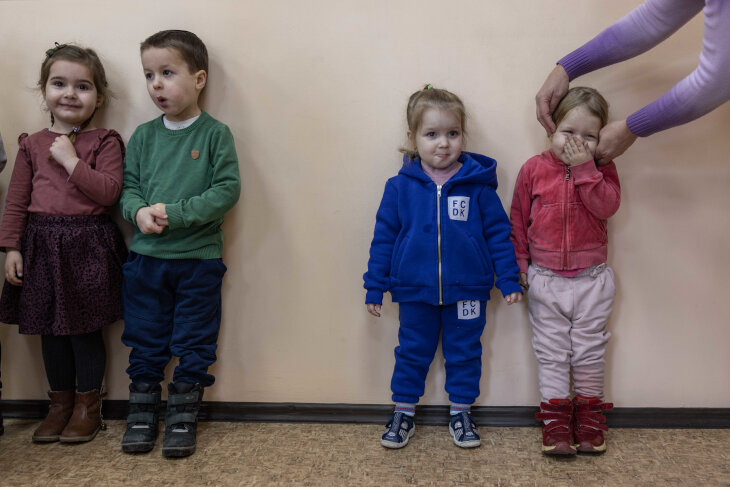 Photo credit: Avishag Shaar-Yashuv (IFCJ)
Photo credit: Avishag Shaar-Yashuv (IFCJ)
For eight months, until the Ukrainians liberated Kherson to the north, Mykolaiv suffered daily shelling. Its infrastructure has been battered, the water is brackish and undrinkable, and even bathing in it causes irritations to the skin. Asked how it's possible to live under such circumstances, Elena Viktorovna emits a bitter laugh. "I don't know. I will never wish this on anyone. It's so scary. At some point you don't know how to react and that is even scarier."
Like so many others here, Viktorovna has cleaved to the community as her anchor. Her Judaism has taken on a renewed expression since the war, she said. "I even have a Hebrew name now. I am Liora," she says, with visible pride.
Chabad and the fellowship do not limit aid only to those within city limits. Irina Zurkan and her husband, Leonid, live in Petrovoselonikha, a desolate village 40 minutes west of Mykolaiv. Since the war, public transport has stopped operating, trapping the Zurkans in their village. Chabad brings the Zurkans their aid packages, which, Irina said, puts her in a much better position than her destitute neighbors who receive only a loaf of bread every week from the government.
Back in Odessa, a meal of borscht, vareniki - a Ukrainian staple similar to ravioli - and meorav Yerushalmi - an Israeli staple of mixed grill - are served in the city's last remaining kosher restaurant, Rozmaryn. At the start of the invasion, they sent six of their eight children to Berlin, but all have since returned, including Mendy, who lived for almost a year with the children from Odessa’s Jewish orphanage in a Berlin hotel.
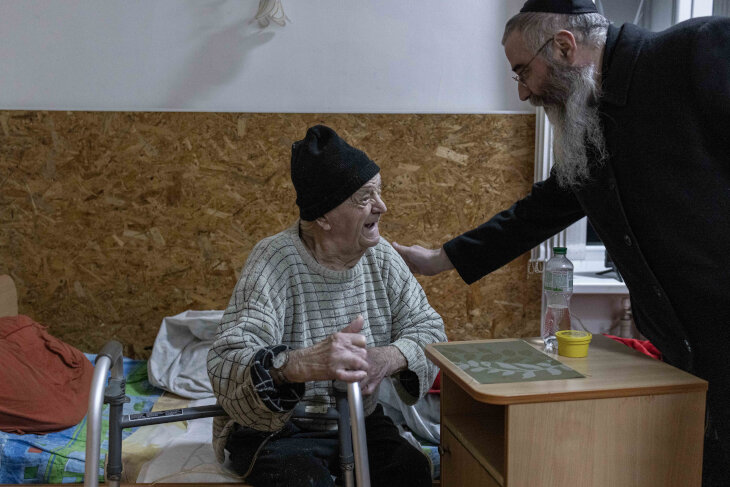 Photo credit: Avishag Shaar-Yashuv (IFCJ)
Photo credit: Avishag Shaar-Yashuv (IFCJ)
Recollecting the first days of the war, Rabbi Wolff says it never occurred to him to leave. "As long as there was a single Jew left in Odessa, we were not moving."
